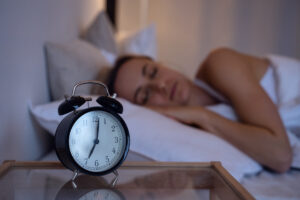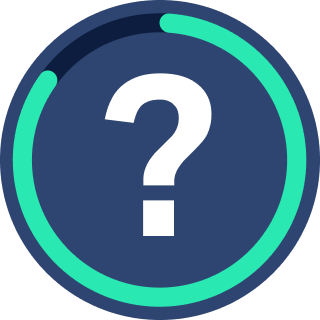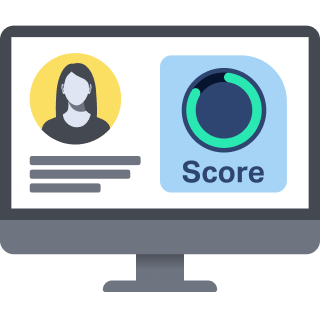Diagnosing Shift Work Disorder
Shift work disorder is a circadian rhythm sleep disorder that largely affects people who work night, early morning, or rotating shifts . The condition is characterized by insomnia symptoms and/or excessive sleepiness when the person is awake. Recent estimates suggest as many as 20% of shift workers in industrialized countries experience shift work disorder.
Long-term complications of this disorder may include irritability and mood changes, impaired social function in and out of the workplace, and depression. Shift work can also affect hormones such as cortisol and testosterone in some people. People with shift work disorder are also at higher risk of committing errors or accidents while on the job. In order to treat this condition, shift workers should seek out a diagnosis from their doctor or another credentialed physician with a background in sleep health.
Requirements for a Shift Work Disorder Diagnosis
According to the American Academy of Sleep Medicine International Classification of Sleep Disorders (Third Edition), criteria for a shift work sleep disorder diagnosis are as follows:
- The patient must experience insomnia symptoms when trying to sleep and/or excessive sleepiness while they are awake.
- They must experience a reduction in total sleep time due to a work schedule that overlaps with a traditional sleep schedule. Typically, people with shift work sleep disorder lose one to four hours of sleep per night.
- They must report symptoms consistent with their shift work schedule for at least three months.
- The symptoms cannot be attributed to another sleep disorder, medical condition, side effects from medication, substance abuse, or poor sleep hygiene.
A diagnosis will require a physical exam to rule out any other illnesses or conditions that could be causing these symptoms. Many patients with shift work disorder are diagnosed based on their sleep history. For a period of 14 days, they report sleep-wake patterns and activities using a sleep log.
If available, the patient will also be asked to conduct actigraphy tests at home. This type of non-invasive and painless testing requires them to wear a sensor on their wrist or ankle day and night for 14 consecutive days. For best results, actigraphy tests should be conducted alongside light exposure measurements.
Evaluating patients during work days and days off is crucial for the diagnosis. If sleep log reports and actigraphy tests indicate a disturbed sleep and wake pattern, then the patient may receive a shift work disorder diagnosis. Alternatively, additional tests may be needed to determine whether the patient has another condition that is causing their symptoms.
Additional Tests for Diagnosing Shift Work Disorder
If you show signs and symptoms of shift work disorder, your doctor may order one or both of the following tests:
- Polysomnography: A polysomnogram, or sleep study, normally requires you to spend the night at a hospital or sleep clinic. For diagnosing shift work disorder, you may be asked to undergo your sleep study during the day instead. While you sleep, an EEG will monitor your vital signs and behaviors during non-rapid eye movement and rapid eye movement stages. In most cases, you’ll be asked to arrive at the testing center about two hours before bedtime.
- Multiple Sleep Latency Test (MSLT): The MSLT may be conducted as part of your overnight sleep study. This test specifically measures how long it takes you to fall asleep during the day, and consists of four to five 20-minute naps interspersed with two-hour breaks. You’ll wear sensors to measure your sleep-wake cycle. For each nap, you’ll be woken up after 15 minutes of sleep, and that nap session will end if you are unable to fall asleep after 20 minutes. The cost of an MSLT normally ranges from $600 to $2,200. You should check with their insurance if the test is covered under your health plan.
Additional tests are usually ordered if the doctor performing your initial exam cannot provide a shift work disorder diagnosis. Conditions that produce similar symptoms to shift work disorder include insomnia, obstructive sleep apnea, narcolepsy, and other circadian rhythm disorders such as delayed sleep-wake phase disorder.
Many people with shift work disorder will experience fewer symptoms after changing to a more traditional schedule that allows them to work during the day and sleep at night. Symptoms that persist after a schedule change may indicate chronic insomnia independent of shift work disorder.
References
3 Sources
-
American Academy of Sleep Medicine. (2014). The International Classification of Sleep Disorders – Third Edition (ICSD-3). Darien, IL: American Academy of Sleep Medicine.
https://learn.aasm.org/ -
Wickwire, E., Geiger-Brown, J., Scharf, S., & Drake, C. (2017). Shift Work and Shift Work Sleep Disorder, Clinical and Organizational Perspectives. Chest, 151(5), 1156–1172., Retrieved from
https://www.ncbi.nlm.nih.gov/pmc/articles/PMC6859247/ -
Smith, M. T., McCrae, C. S., Cheung, J., Martin, J. L., Harrod, C. G., Heald, J. L., & Carden, K. A. (2018). Use of Actigraphy for the Evaluation of Sleep Disorders and Circadian Rhythm Sleep-Wake Disorders: An American Academy of Sleep Medicine Clinical Practice Guideline. Journal of clinical sleep medicine : JCSM : official publication of the American Academy of Sleep Medicine, 14(7), 1231–1237.
https://pubmed.ncbi.nlm.nih.gov/29991437/
















